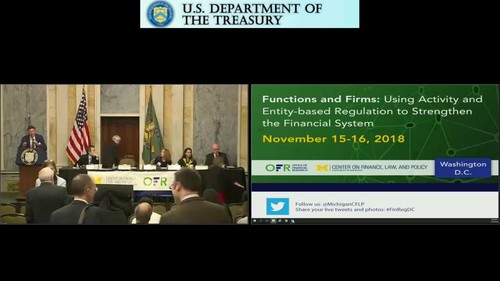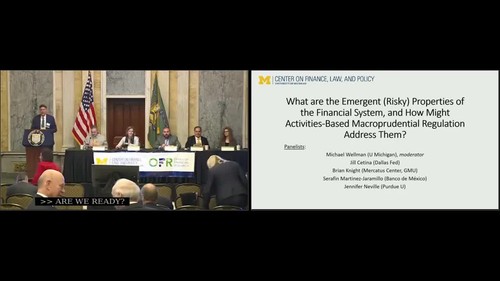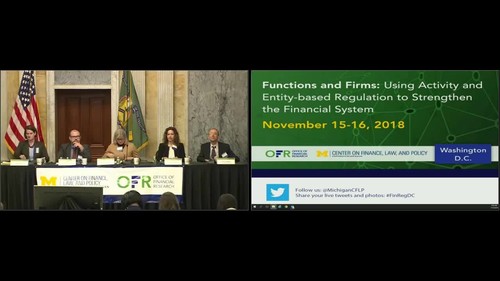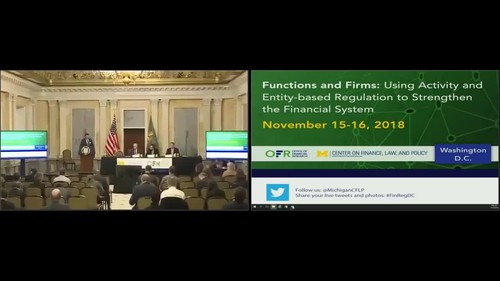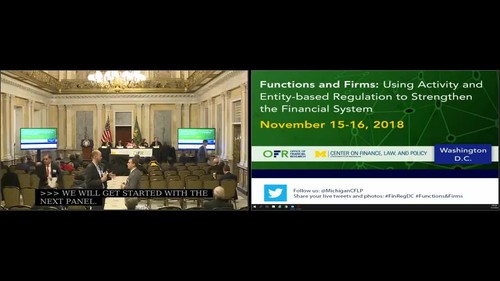
Robert J. Jackson Jr.
Robert J. Jackson, Jr. was appointed by President Donald J. Trump to the U.S. Securities and Exchange Commission, unanimously confirmed by the Senate, and served as Commissioner from January 11, 2018 to February 14, 2020.
Commissioner Jackson was an outspoken advocate for protecting investors, consistently calling for more transparency in capital markets and championing evidence-driven policymaking. He challenged Silicon Valley insiders on whether dual-class stock allowing intergenerational transfer of corporate control gave executives too little accountability, leading major investors to call for limits on the practice. He worked tirelessly to prevent public companies from forcing investors to give up their right to sue. His efforts to update insider-trading law helped produce legislation with broad bipartisan support, and his research led to legislation to stop executives from trading before the public announcement of key events. Jackson testified before Congress on disclosure of how public companies spend shareholder money on politics—and how large investors help keep that spending in the dark. He also pushed for transparency on how non-standard accounting measures are used to boost CEO pay and sought new standards for oversight of index providers, concerned with their increasing influence over how American families’ savings are invested.
Jackson called competition the “forgotten fourth pillar of the SEC’s mission,” arguing that concentration among banks, accounting firms, and proxy advisors left Americans with too few choices in finance. He pushed for more competition in underwriting fees, producing research documenting that 96% of middle-market companies paid Wall Street banks a tax of exactly 7% to go public. He testified before the Federal Trade Commission on the outsized voting power of a small group of institutional investors, urging more transparency on how they vote ordinary investors’ savings. Concerned that concentrated control of stock exchanges had produced conflicts of interest that hurt investors, Jackson called for greater scrutiny of the exchanges, aiming to “put the ‘exchange’ back in the Securities and Exchange Commission.” His Office helped lead the SEC’s unanimous adoption of a pilot to study the effects of exchange payments on markets.
Known for his data-driven approach, Commissioner Jackson’s speeches and statements often presented new findings from his Office’s original research. One speech showed how executives use buybacks to cash out their personal holdings of company stock, and a later letter to Congress showed that companies that allow CEOs to sell into buybacks underperform over the long run. Dissenting from the adoption of Regulation Best Interest because it failed to require financial advisors to put investor interests first, he presented evidence that advisors who don’t do so are more likely to give investors conflicted advice. Jackson confronted efforts to roll back protections established in the Sarbanes-Oxley Act by showing that proposals to do so relied on decade-old data. He pushed back on efforts to restrict shareholder voting rights and proposed alternatives on the basis of market-driven evidence. And he dissented from efforts to expand private markets to retail investors, providing new evidence that brokers who sell ordinary Americans on private markets are more likely to have wronged their clients in the past.
The only Commissioner to teach at the SEC’s in-house University, Jackson joined the SEC from NYU School of Law, where he was a Professor of Law. Previously, he was on the faculty of the Columbia Law School. Before that, Jackson served as a senior policy advisor at the U.S. Treasury Department, working with Kenneth Feinberg, the Special Master for TARP Executive Compensation, to develop policies to give shareholders a say on pay and encourage TARP recipients to more closely tie pay to performance. Earlier in his career, Commissioner Jackson practiced law at Wachtell, Lipton, Rosen & Katz.
Commissioner Jackson holds two bachelor’s degrees (one in finance, another in philosophy) from the University of Pennsylvania; an MBA in Finance from the Wharton School of Business; a master’s degree from Harvard’s Kennedy School; and a law degree from Harvard Law School. He married his wife, Bryana, while serving on the Commission. He was born in the Bronx, New York, and is a lifelong Yankees fan.
Professional affiliations
New York University School of Law

